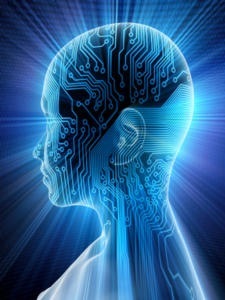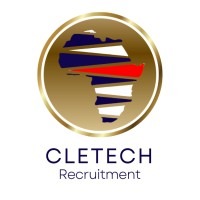A brAIve New World

This article has been inspired by David Grinberg, who asked the question.
Technology has permeated every corner of our world. The product of our collective intellect now comes full circle – the interface of human consciousness with rapidly evolving artificial intelligence (AI). In projecting possibilities of further integration from this point onwards, we need to define the players.
AI can be summarized as having multiple inputs of data, rapidly expanding memory capabilities and processing potential driven by an exponential growth of smart algorithms. In this way the data feed becomes less fettered (filtered), the mutually enhancing algorithms become more open-ended with the result that knowledge (in the form of ‘big data’) and understanding of the inputted environment becomes greatly enhanced. The implications of this explosion of knowledge and understanding can best be illustrated as follows: Up until, this point, when you apply for a life insurance policy, the existing algorithm will capture relevant variables such as age, gender, marital status, pre-existing illnesses, family history, habits, occupation and so forth. The program then generates a risk profile based on known associations (smoking and cancer etc) and your premium is set.
But what the ‘big data’ of the new AI will be generating will knock your socks off. So hold on to your socks. The crunch is that the AI program will not only be capturing the data related to predetermined variables, but will capture everything about you from multiple inputs – the above-mentioned application details together with your address, phone number, family’s names, all your preferences as reflected in your entire electronic footprint (social media/other electronic communication) etc. So here’s a sample of your new AI generated risk profile: If your name is John and you’re married to a Mary and your phone number includes a 2 and a 7 and you were born in September, then you have an eighty percent chance of developing lung cancer by the age of 52 years if you live in a city which has summer rain!! So on receiving this information you immediately diminish your risk by divorcing Mary and getting a new phone number. Well the AI already factored that in ....... It would have predicted that you would divorce your wife and get a new phone number and predicted with certainty what the name of your new wife would be, which now confirms with greater confidence that your risk profile is validated!
Let’s get back to consciousness and the brain. For the purposes of this discussion I’m going to use the left-right brain model. Based predominantly on the right side is big-picture sensitivity, creativity, innovation, subtlety and a great proportion of the emotional connections. The emotional connections incorporate your life narrative based very much on the nurture history. This is a place of subjectivity reflected in your beliefs (together with limiting beliefs). This is a non-linear place, yearning to be unfettered from left brain constraints. The left brain is the linear, rational, expressive place which uses reasoning and logic to form measured and intelligible product. It dominates the right brain and has expectations. In this context I would contend that the emotions of the right brain would be empathy, trust, belief and awe. Left brain-based emotions flow from the fear of loss and the need for recognition. Left and right brains co-operate through integration via the large left-right bridge, the corpus callosum. In effect, the right brain comes up with a hunch, usually wrapped up in an emotional package and requests the left brain to debrief it and in so doing, construct the product for expression.
And so we bumble along in life, engaging with multiple environments and with people, all based on preferences reflecting our subjectivity. Indeed we apply as much logical reasoning as our subjectivity will allow, but ultimately we will remain comprehensive products of our nature-nurture heritages. We respond to emotional cues which may be effective compasses if we have heritages free of too much deprivation together with an ongoing logical reasoning feed. The converse however is problematic. The cues may reflect a nurture of high deprivation such that negative emotions of excessive fear, hostility and a low self-esteem prevail. Judgement is negatively biased and perception is clouded. The result is further loss of clarity, diminished self-esteem and gratification and a spiral into hopeless-helplessness.
And so it comes to pass that AI becomes incorporated into your life. It becomes the extension to your left brain. The right brain requests now become processed through the vast data bases of AI. Reasoning expands exponentially together with resultant clarity and awareness. The AI algorithms know you intimately. They know your creative preferences, gratification requirements your fears, limiting beliefs, everything. Through appropriate processes of disputation (they automatically dispute your fears, limiting beliefs and causes for low self-esteem) they provide inspiration to create, express and to enhance personal gratification. There would need to be only one constraint, ring-fenced within the AI algorithms - respect for life and for the environment. Flowing from this would be a theme of ‘value contribution’ – making something better than it was before you engaged with it.
Ultimately we as individuals would engage the AI interface with our human consciousness, warts and all. But the engagement with the AI bridge would facilitate our transcendence beyond negative emotions and limiting beliefs and promote our creativity and value contribution. The ongoing interaction contributes learning and evolution to the individual human consciousness while contributing to the expansion of ‘big data’- based AI. It inevitably becomes an unlimited partnership of mutual enhancement and self-perpetuation.
But what could be our greatest triumph could also morph into our greatest loss. For if the core of AI is ‘captured’ by human self-interest (greed, power and domination) we could find ourselves staring into the dark abyss sooner than we could ever have imagined ....
Copyright reserved - Ian Weinberg 2017
"
Articles from Ian Weinberg
View blog
The concept of self-actualization is used pretty loosely. Coined originally by Kurt Goldstein, the c ...

The ‘experts’ are in a modelling muddle. My response to this is one of empathy. You see, the ‘expert ...

We are, each one of us, the products of our nurture environments and the narrative which followed th ...
Related professionals
You may be interested in these jobs
-

Established Financial Advisor
Found in: Talent ZA C2 - 6 days ago
Old Mutual Johannesburg, South Africa Full timeLet's Write Africa's Story Together · Old Mutual is a firm believer in the African opportunity and our diverse talent reflects this. · We are looking for self-motivated and dynamic individuals who have a passionate entrepreneurial spirit to join one of Africa's leading insuranc ...
-

Software Engineer
Found in: Executive Placements ZA C2 - 6 days ago
Cletech Recruitment Cape Town, South AfricaResponsibilities:Lead prototyping and software development for telescope operational software. · Provide technical support for hardware platforms and deployment environments, including on-site visits. · Collaborate with stakeholders for engineering, commissioning, and operations. ...
-

Microsoft Azure Administrator
Found in: Talent ZA 2A C2 - 2 days ago
IOCO Pretoria, South AfricaWe are seeking a skilled and experienced Microsoft Azure Administrator to join our IT team. As a Microsoft Azure Administrator, you will be responsible for the design, deployment, and management of Azure services and resources, ensuring the organization's cloud infrastructure is ...

Comments
Ian Weinberg
7 years ago #25
Lisa Gallagher
7 years ago #24
LOL! You are witty Gerald Hecht and thanks for the laughs :-)
Mark Blevins
7 years ago #23
Mark Blevins
7 years ago #22
Ian Weinberg
7 years ago #21
Hi again I don't know where this thing about humans only using a small part of their brains, originates. What I do know is that using diagnostic modalities such as EEG's, fMRI and PET scans, we see comprehensive activity taking place throughout both hemispheres. How much of this activity is cohesively integrated and monitored at the screen of consciousness at any given moment, is another whole discussion. As regards the replication of human consciousness on memory devices, we need to respect the existence of many components that contribute to this thing called consciousness. Inter alia these include data memory storage, unique subjectivity/algorithms, emotion and then of course the interaction of consciousness with quantum phenomena - 'spooky action at a distance'. At this stage I would suggest that data and algorithms could be feasibly replicated and stored. But the million dollar question is how do we get our hands on the source data since we haven't worked out precisely how the neuronal networks store the bytes of info. I would leave you with a thought analogy to ponder - Is the data actually stored in individual brains or are we mere PC's with basic operating systems and unique frequencies, tapping off cloud-based data bases? We do our integration bit (create subjective 'Word' documents) and send them up to the cloud. Likewise we tap off the cloud for substrate data for further integration.
Ian Weinberg
7 years ago #20
Wouldn't have made much difference Gerald Hecht since I was so moist at the time. Now about your snort shake ... could be a great ice-breaker on a first date.
Ian Weinberg
7 years ago #19
😂
Ian Weinberg
7 years ago #18
Thanks Praveen. Just to complete the picture, perhaps peruse this earlier buzz of mine https://www.bebee.com/producer/@ian-weinberg/the-mushy-brain-mystery
Ian Weinberg
7 years ago #17
Thanks Ali Anani Looking forward to your reflections
Ali Anani
7 years ago #16
Ian Weinberg
7 years ago #15
I'll get back to you with my response. Requires some in-depth cogitation!
Lisa Gallagher
7 years ago #14
Ian Weinberg
7 years ago #13
Gerald Hecht Stay unplugged - we desperately need battery attendants and gardeners ...
Paul Walters
7 years ago #12
Paul Walters
7 years ago #11
Gerald Hecht Could you please resend in Bahasa Indonesian . One of your Ai robots should be able to do that in a flash !
David B. Grinberg
7 years ago #10
David B. Grinberg
7 years ago #9
Paul Walters
7 years ago #8
Milos Djukic
7 years ago #7
:)
Milos Djukic
7 years ago #6
Milos Djukic
7 years ago #5
Ian Weinberg
7 years ago #4
Absolutely correct Sara Jacobovici Reducing all of human consciousness to the lowest common denominator of stored data and algorithms will ensure that we become robotic zombies - The effective end to human innovation and creativity. See a previous buzz of mine https://www.bebee.com/producer/@ian-weinberg/the-mushy-brain-mystery
Sara Jacobovici
7 years ago #3
Ian Weinberg
7 years ago #2
Ian Weinberg
7 years ago #1